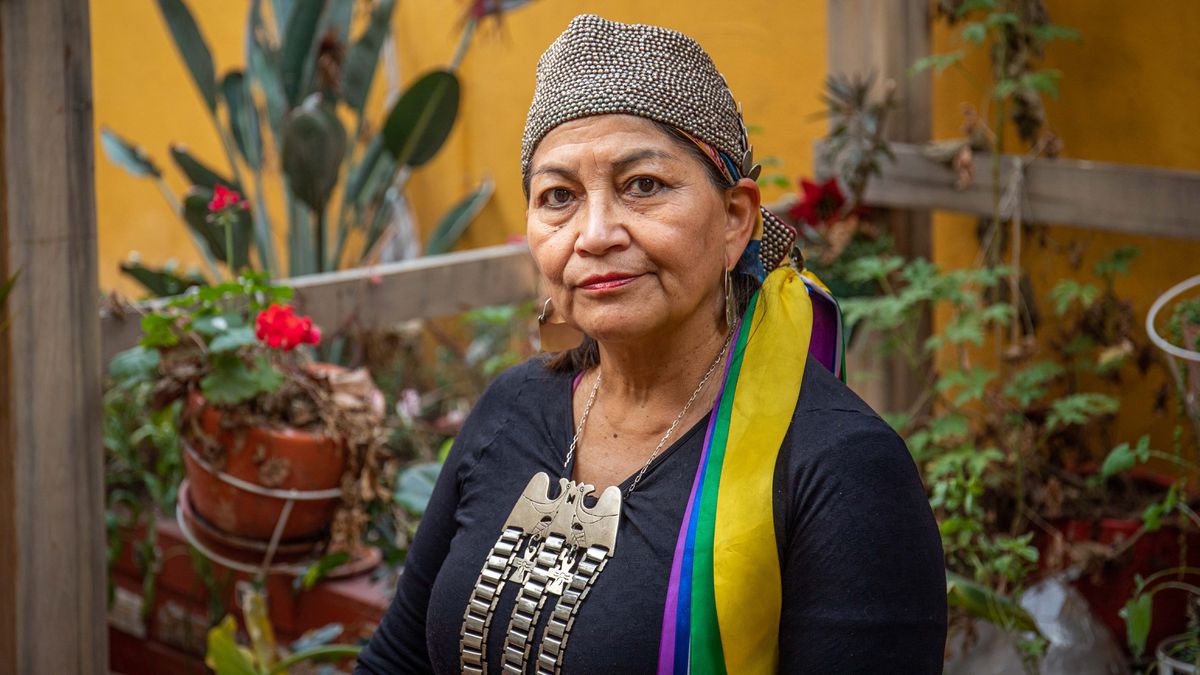RIO DE JANEIRO, BRAZIL – The president of the convention charged with drafting a new Magna Carta in Chile, Mapuche academic Elisa Loncon, said Monday (2) that Chile is experiencing “colonial relations” regarding the link between the indigenous people to which she belongs and the country’s state and economic actors.
“In Chile, we live in colonial relations, where, as in South Africa, there are colonizers and colonized. And we will not be free, one or the other, until we get out of this position we have put ourselves in,” Loncon said in a conference with foreign press correspondents.
Read also: Check out our coverage on Chile
In this sense, she praised the work of former South African President Nelson Mandela, who succeeded in bringing peace “in a colonial system with so much racism.” However, she asserted that she did not have former President Mandela’s “aspiration” to intervene in the Chilean-Mapuche conflict.

The government has a “political, ethical, historical and moral responsibility to solve the problem. That’s why I said I’m not in Mandela’s situation because I’m not the government,” Loncon said.
Although she made it clear from the beginning that she was careful not to put the constituent body “in situations of conflict,” she said she was willing to “collaborate” in solving the problem within the framework of her institutional powers, in the “spirit of this future country where human rights are respected.”
The Mapuche people, Chile’s largest indigenous group, are laying claim to the land they inhabited for centuries before it was forcibly occupied by the Chilean state at the end of the 19th century. This is now largely owned by forestry companies and powerful economic groups.
In this context, acts of sabotage against forestry machinery and fires continue to occur in La Araucanía and Bíobío in a conflict that has seen numerous Mapuche community members shot by state officials, police officers killed, and indigenous prisoners go on hunger strike.
“If you look at it in terms of South Africa, it’s important that we are part of the solution. In La Araucanía, the conflict is increasing because the indigenous peoples are not part of the solution (…) The violence in the Wallmapu – the Mapuche area – is structural, and my call to stop the violence is to put an end to this structure of violence,” added the president of the Convention.
FUNCTIONING OF THE CONSTITUENT BODY
Loncon also referred to the progress of the Constituent Convention, which was officially established on July 4 and is approaching its first month of work, a period that Loncon described as “tireless work” to create adequate conditions.
“It’s been difficult because we haven’t received the support we expected from the government, especially in terms of personnel and the infrastructure needed to get started,” Loncon explained.
After setting up eight commissions involving the 155 members of the Convention, the body gave itself 30 days to complete the drafting of the regulations, unlike other Latin American constitutional processes where the same task took six days.
“It is impossible to write a constitutional article if how the words are to be given is not regulated, if the words are not regulated in terms of sectors and diversity, we have parity, we have plurinational, we have regional diversity, and we have to find a balance between all of that,” the president explained.

